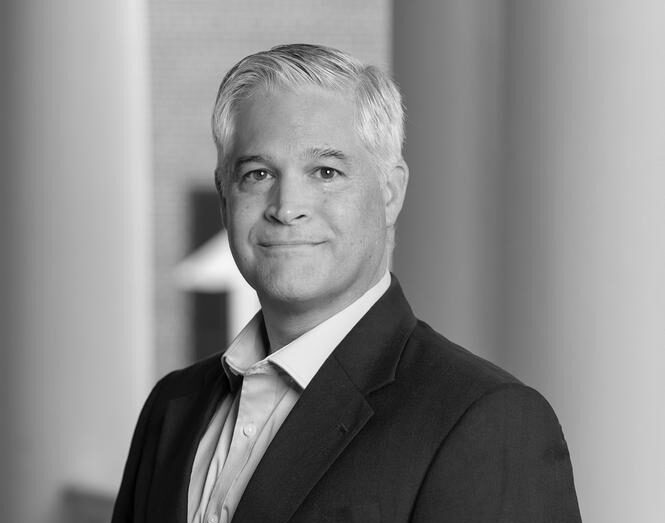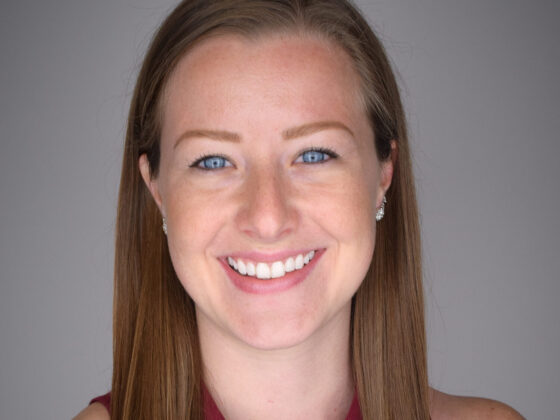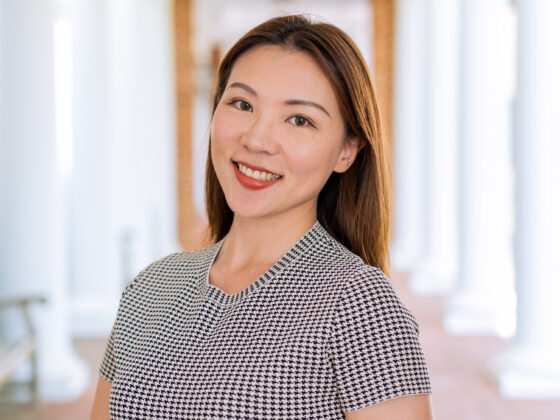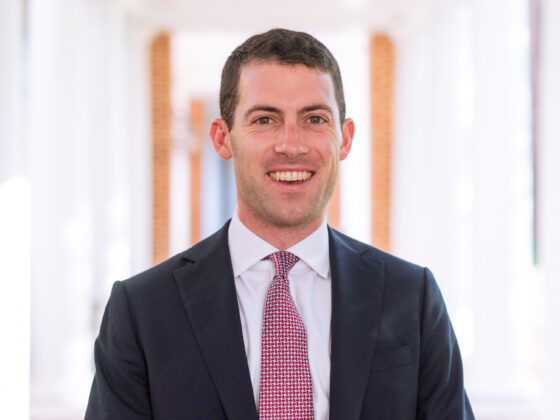Professor Brian Moriarty is an assistant professor and course head in the Communication area at Darden. A researcher, published author, and trusted consultant to corporations, non-profits, and think tanks, he brings a deep interest in how stories shape organizations and society.
Among his many contributions to Darden, Professor Moriarty has led two iterations of the Ireland Darden Worldwide Course (DWC), most recently in March 2025. For Moriarty, this course holds deep personal resonance — his ancestors emigrated from Ireland during the Great Famine, and his early exposure to stories of their homeland left a lasting impression. His connection to Ireland, combined with his passion for storytelling and cultural learning, makes DWC Ireland not only an academic journey but a meaningful return to his roots.
Following the course this spring, Professor Moriarty shared his reflections on the experience, the role of culture in global business, and the transformative power of learning abroad with CGI.
1) Please share a bit about yourself and what inspired your career.
My hometown made me aware from an early age of the connections between individual human thriving and economic growth. I was born and raised in the city of Holyoke, Massachusetts, which is one of the first industrial-planned communities in America. Situated on the banks of the Connecticut River, where there is a natural 57-foot drop, Holyoke was an attractive site for nineteenth-century industrialists due to the exceptional availability of hydropower.
In 1847, at the height of An Gorta Mor, Ireland’s great famine, massive construction began in Holyoke which drew immigrants from France, Poland, and Ireland — including my ancestors — like a giant magnet. Manual laborers built the city, which included a massive dam across the Connecticut River, three levels of canals, factories with water-powered turbines, and a host of other projects. Holyoke grew quickly, becoming the paper capital of the world, a textile juggernaut, and a leading innovator in turbine design.
Like many New England industrial cities, Holyoke experienced a massive reversal of fortune following the Great Depression from which it is still recovering.
Holyoke’s story initiated my fascination with business in society issues. Our best plans can prove to be quite fragile. My academic interests focus on the role that stories play in organizations and communities such as how they are employed for strategic ends.
Besides stories and storytelling, my pursuits include semiotics, poetry and ethics. Outside of work, I enjoy nature, hiking, sports, and spending time with friends and family.
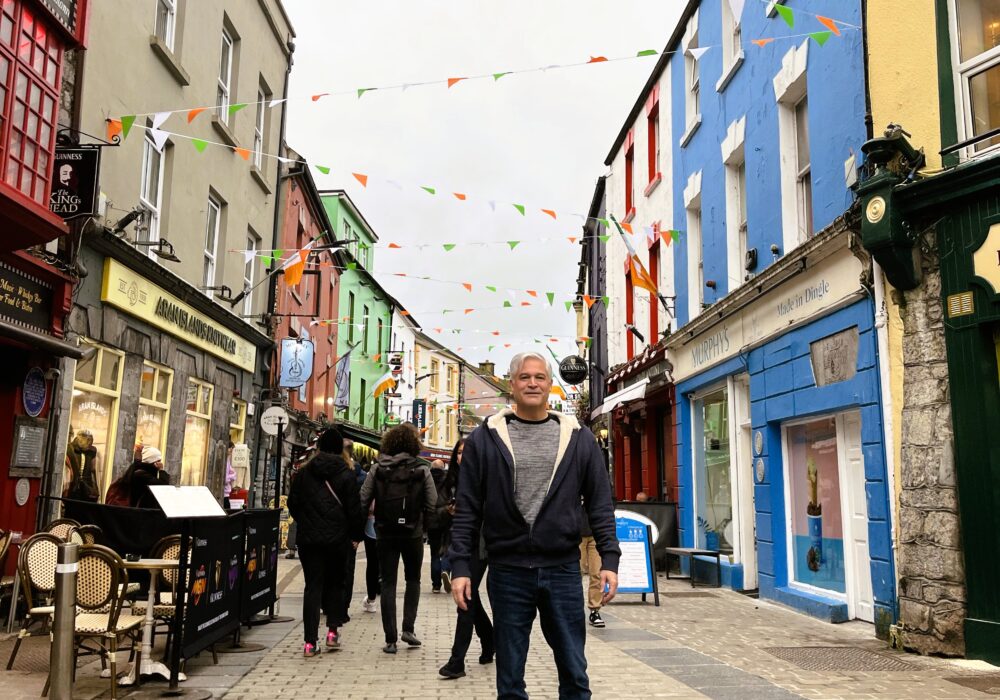
2) Tell us about your time as a professor at Darden. What impact has teaching Darden Worldwide Courses had on this experience?
One of my favorite thinkers is the literary theorist, Mikhail Bakhtin. Bakhtin has a concept he calls the “excess of seeing.” His idea recognizes that every person has a limited field of vision. Physically, we only see what is in front of our eyes — and if we take vision as a metaphor for our cognition, we only cognize the world through our own unique perspective. However, Bakhtin suggested that when we engage others in dialogue, we add their perspectives to our own. This excess of seeing is critical for growing our understanding of the world and ourselves.
This is a great description of the magic that can happen in a Darden classroom. When students trust their colleagues enough to share their thinking in class, it is as if they open a small door in their head and let others peek inside. This gift of generosity is the excess of seeing in action for those who reciprocate by receiving with gratitude what their colleague has offered.
Darden Worldwide Courses are like the case method on steroids. Not only are students gaining from the perspectives of their classmates, but they are experiencing an environment and culture that are completely new. They get to interact with incredible people — whom they likely would never otherwise meet — through the course. As a teacher who loves to watch my students develop, growing alongside them is a remarkably enjoyable experience.
3) Walk us through your connection to Ireland. When did you first visit the country and what keeps you going back?
I first visited Ireland as an exchange student for the academic year 1987-1988. My undergraduate school, Boston College, had a longstanding exchange program with University College Cork (UCC). I was not an ambitious student, but stories that my great-grandfather, Patrick Moriarty, had told me and my brother about his beautiful homeland left a powerful mark. For as long as I can remember, I wanted to see Ireland for myself. I have always thought that the subtext of my great grandfather’s wonderful stories was his deep desire that we go to see the homeland he loved and to which he never returned.
As a first-generation college student who worked 20+ hours a week during the school year to afford tuition, I had hoped to work while studying in Ireland in 1987-88. I soon learned that finding work was impossible. The unemployment rate in Cork, Ireland’s second largest city, was around 38%. Not surprisingly, there was also little technological infrastructure. While most students at Boston College wrote papers on their personal computers, at UCC everything was written by hand in notebooks. I lived in a house with no phone and no central heating.
While the economic situation has changed dramatically since my first visit to Ireland, the tremendous culture has not. There is music everywhere and people love it when everyone joins in and sings along. People regularly engage in conversations and share stories. In Ireland, having a remarkable chat with a stranger while waiting for your bus to arrive is something that happens regularly. The people, their welcome, the music, and beauty of the land make me always eager to return.
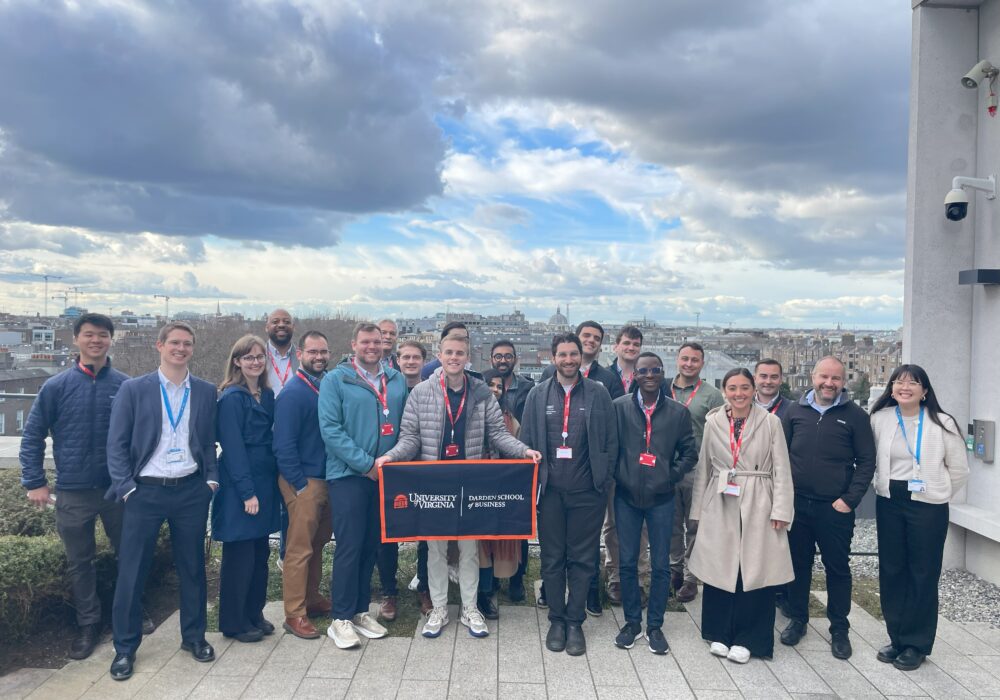
4) When leading the Ireland DWC, what do you hope that students will take away from the experience?
First, they will discover that Ireland is NOT what they expected. It is a remarkable place that is utterly unique, but you need to spend a bit of time on the ground to experience the place to see how different it is. We meet with some incredible people who have very different perspectives, and thinking through these various social tensions is a focal point of learning. For example, many students puzzle through which aspects of Ireland’s cultural and economic story can be replicated elsewhere and which ones can’t.
Second, I hope students become convinced that learning done well is incredibly fun and energizing — and that learning alongside others is far superior to learning on our own. While I love revisiting Irish friends at their organizations and hearing about their latest challenges, the experience is different each time because the students are different. DWCs are such a pure form of learning where everyone’s passions and interests help shape the conversations we have.
5) What was it like to meet with Darden alumni in Ireland? What perspectives were they uniquely able to provide to students?
Gareth Davis (MBA’03) and Breda Duigan (MBA’03) are two delightful and exceptionally accomplished people whom I have enjoyed getting to know. This year Gareth, who leads group strategy and risk management at ESB welcomed us to his company along with his colleague Mairen Shea who is also a UVA alum. As a utility, ESB is at the heart of Ireland’s transformation and its renewable energy investments. It was great for students to hear about these challenges and opportunities from one of their own who has a key role in bringing this future to fruition.
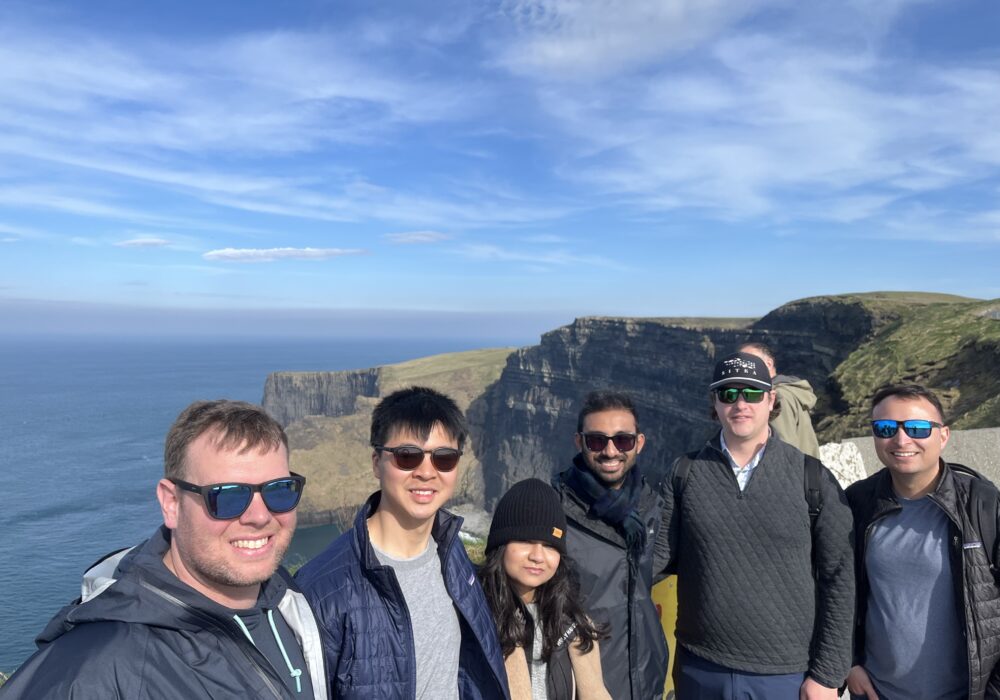
6) What is a favorite memory of yours from the course?
There are many, but honestly, I enjoyed riding on the bus having conversations. The social roles fade, and people just connect human-to-human. I discover things about these amazing people who attend our programs that previously were invisible to me. It is such a gift. Listening and singing along to great music sessions in a pub and experiencing that joy together is fantastic as well.
The course includes a strong cultural component that looks at Ireland’s centuries-long struggle to retain its cultural identity. We interact with people dedicated to the survival of Irish-speaking communities and to the proliferation of Irish culture and sports. While these topics are very meaningful to me as a human and as a scholar, I was unsure how they would resonate with students.
I am delighted to find that students have found these elements of the course to be particularly impactful. Many of our students come from previously colonized countries or racialized societies that have experienced cultural erasure and Ireland’s resilience speaks to them.
Seeing how Ireland is leveraging their diaspora to attract economic investment in the country’s future offers a potential model for other countries to use their own painful histories to help engineer a brighter future.
7) From a global business perspective, what can future leaders learn from Ireland’s history and business practices?
Ireland remained committed to a forty-year economic plan despite different political parties being in power during that time period. Some people in Ireland complain that the two parties that have held power since independence are too alike and that both overrepresent the interests of business and the upper class. While I expect this will continue to be an issue — particularly with regard to Ireland’s housing crisis — it is hard to imagine how Ireland’s economy would have become such a global juggernaut in a more sharply polarized political environment.
Business can have tremendous social impact particularly over the long term. Paying careful attention to these aspects of your decision-making is part of what it means to be a responsible business leader. That responsibility is difficult to manage well. It requires enduring engagement with the communities you impact to understand their evolving interests. This responsibility is not a burden; it is a privilege.


